Daily Drive | Brazil, Minas Gerais, Natural
Regular price €8,50
Natural


1099 m

Seasonal selection

Bronze
DAILY DRIVE
ESPRESSO
Brazil
Region: Minas Gerais, Carmo do Paranaíba
Farm : Fazenda Santa Cecília
Owners: Veloso Family
Taste notes - Black chocolate, brazilian nut, dates
The bronze range is our connoisseur to the world of specialty coffee. Opening doors to simple yet exciting coffee.
We all have nostalgia for Life's Good Classics! Grandma's old way of cooking, the “puff” sound of opening a cold lager, or taking the first bite of a favorite childhood candy bar—there’s nothing like the classics. While new, complex, and outstanding taste experiences are delightful, the long-standing classics hit differently.
Daily Drive - our way of classic and easy-going espresso! This single-origin Brazilian espresso delivers notes of dark chocolate, Brazilian nuts, and a sweet aftertaste of dates.
Brazil
Brazil is the largest producer of coffee in the world, with a range that encompasses smallholder farms to vast estates. The soils, regional climate, and temperatures provide excellent growing conditions. However, Brazil lacks the altitude considered crucial for creating the most exclusive taste profiles expected from Arabica coffee. Much of its coffee is grown at or below 1,000 meters above sea level—much lower than the typical 1,400–1,800 meters found in many other coffee-producing nations.
Over the past decade, Brazil has worked hard to promote itself as a sustainable origin. Global attention has prompted various legislatures to enforce the protection of indigenous habitats and forestry. Many estates have gone further by creating substantial conservation areas on their properties and proving their commitment to sustaining and developing the overall coffee chain by certifying their farms. The typical flavor profile of Brazilian coffee includes notes of nuts, caramel, and a creamy body. However, as producers develop new techniques, newfound sweetness, citrus, and acidity are becoming more common.
Veloso
In the past, coffee production in Brazil mainly took place in Paraná state, located in the southern part of the country. In 1975, Brazil was hit by the Black Frost, which caused low humidity to freeze the water in the coffee plants, destroying most of the coffee production in Paraná.
At that time, farmer Pedro Veloso traded small lots of grains before becoming a coffee farmer. To sell his grain, he needed to travel to Santos, where all crop trading was conducted. There, he overheard a conversation about the Brazilian government offering land at low prices to restore coffee farming and help farmers whose farms were destroyed by the Black Frost. He saw this as an opportunity to grow and try something new. In 1977, Pedro Veloso purchased his first coffee farm.
Over nearly 50 years, his 12 hectares of land have expanded into three large farm complexes: Santa Cecília Complex, Santa Rita Complex, and Palmeira Complex. The business has grown from a one-man operation to a family-run enterprise, with Pedro involving his entire family, bringing the Veloso name to the world and continuously developing and sustaining its quality. In 2014, Veloso became a member of the Rainforest Alliance, which protects forests, improves the livelihoods of farmers and forest communities, promotes their human rights, and helps them mitigate and adapt to the current climate crisis.
Rainforest Alliance Certification
The Rainforest Alliance certification signifies a commitment to sustainable agricultural practices that protect the environment, support local communities, and improve farmers' livelihoods. For coffee production, this certification ensures that farmers are committed to rigorous standards that promote biodiversity, reduce environmental impact, and enhance social and economic conditions for workers. By choosing Rainforest Alliance certified coffee, consumers support a more sustainable coffee industry that respects both people and the planet.
Processing
When harvest starts, coffee cherries are harvested with specialized machines that select cherries based on their ripeness, evaluating and choosing specific lines of coffee and parts of trees where the fruits are at their ripest. After harvesting, the cherries are spread on the ground and dried in the sun for several days. They are then transported to a dry mill where the beans are separated from the pulp. The beans are spread on drying patios to undergo slow sun drying until they reach 11.5% moisture. After drying, the beans are separated from the hull and sorted by size and quality. Finally, the coffee is packed in 60 kg bags, marked with the coffee lot's information, and shipped in containers to Rocket Bean.







